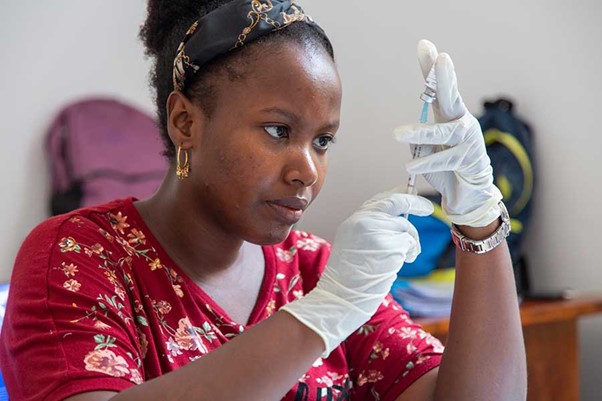WHO recommends Oxford and Serum Institute developed malaria vaccine
A wider roll-out of the R21/Matrix-M vaccine is expected to begin early next year.
 Representative Image / Photo -Tom Wilkinson/University of Oxford
Representative Image / Photo -Tom Wilkinson/University of Oxford
The World Health Organization (WHO) recommended the malaria vaccine R21/Matrix M, developed by the Jenner Institute at Britain’s Oxford University and the Serum Institute of India (SII), for the prevention of malaria in children.
The recommendation was based on pre-clinical and clinical trial data which showed good safety and high efficacy at sites with both seasonal and perennial malaria transmission in four countries, making it the world’s second-ever WHO-recommended vaccine for prevention of the disease.
Adar Poonawalla, CEO of SII said, “For far too long, malaria has threatened the lives of billions of people across the globe, disproportionately affecting the most vulnerable amongst us. This is why the WHO recommendation and approval of the R21/Matrix-M™ vaccine marks a huge milestone on our journey to combat this life-threatening disease, showing what exactly can be achieved when the public and private sector, scientists and researchers, all work together towards a shared goal.”
He added, “As we continue to work together to create a healthier, more equitable world for everyone, I am incredibly proud of the part that the Serum Institute of India has played in developing the R21 malaria vaccine. We look forward to scaling up the vaccine production to ensure that it is accessible to those who need it the most.”
The vaccine recently reached the primary one-year endpoint in a large-scale phase three clinical trial. Around 4,800 children across Burkina Faso, Kenya, Mali, and Tanzania were given the vaccine in this phase, the trial results for which are under peer review. The vaccine was “well tolerated with a good safety profile,” said a press release by SII.
Over the one-year period, the efficacy of the vaccine was 75 per cent at sites with high seasonal malaria transmission and 68 per cent at the sites with more perennial transmission.
With the approval and recommendations by the WHO in place, the additional approvals are expected to follow shortly after which the R21/Matrix-M vaccine doses could be ready to begin a wider roll-out as early as next year.




.jpg)



.png)

.webp)
.png)




Comments
Start the conversation
Become a member of New India Abroad to start commenting.
Sign Up Now
Already have an account? Login